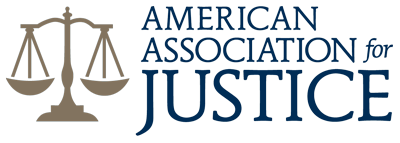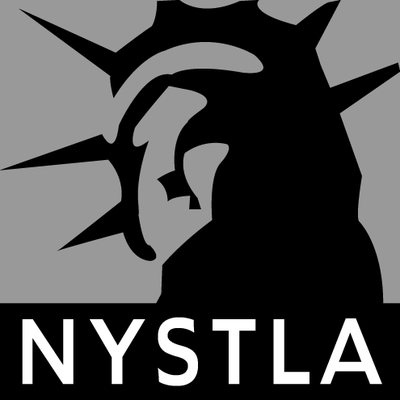Families place their loved ones in nursing homes with the expectation of safety, comfort, and proper care. Unfortunately, some families experience the heartbreak of realizing that their family member may have suffered from neglect in a nursing home. Nursing home neglect can lead to serious injuries, emotional distress, and even death, leaving families to grapple with a deep sense of betrayal. When families in New York suspect that a loved one has been neglected, understanding the available legal options can help them protect their loved ones and seek justice. At, Andrews, Bernstein & Maranto, PLLC, we are here to guide you through the legal process and help you navigate the complexities of your case.
What Is Nursing Home Neglect?
Nursing home neglect happens when a nursing facility fails to provide the basic care and attention required to keep residents safe and healthy. This type of neglect may involve not providing enough food or water, failing to maintain hygiene, or not assisting residents with basic needs. Neglect can also occur when staff members do not take proper precautions to prevent accidents, infections, or health complications. This neglect can result in serious harm, including falls, bedsores, malnutrition, dehydration, and worsened medical conditions.
Neglect can also be emotional in nature. When nursing home staff fail to offer comfort, companionship, or respond to a resident’s emotional needs, it can cause feelings of isolation and fear. Nursing home residents deserve a standard of care that addresses both physical and emotional needs. When a nursing home fails to meet these standards, families may have legal options to address the harm that has been done.
Recognizing the Signs of Nursing Home Neglect
Understanding the signs of nursing home neglect can help families identify when something may be wrong. Physical signs may include sudden weight loss, dehydration, and poor personal hygiene. Bedsores, bruises, or signs of infection may also suggest that staff members have not been providing adequate care. Emotional signs of neglect may include changes in behavior, withdrawal, anxiety, and sudden depression. If a loved one in a nursing home begins displaying these signs, families may want to take action by investigating the situation further.
Recognizing neglect early is important. By identifying these signs quickly, families can prevent additional harm to their loved ones. Documenting these signs is also helpful for any future legal steps. Families in New York may choose to consult with a nursing home neglect attorney if they believe that their loved one is suffering due to neglect.
Legal Protections for Nursing Home Residents in New York
New York has laws and regulations designed to protect nursing home residents from harm. The Nursing Home Reform Act, for example, sets federal standards for nursing home care to ensure the health and well-being of residents. This law establishes the rights of residents to receive adequate care, maintain personal dignity, and be free from abuse or neglect. In addition, New York’s Public Health Law requires nursing homes to uphold these standards and protect the welfare of each resident. Nursing homes that violate these laws can face penalties and may be held legally responsible for the harm caused to residents.
Families who suspect that a nursing home has violated these standards have the right to seek legal assistance. Consulting a lawyer who understands New York’s nursing home laws can help families navigate their options. By pursuing legal action, families may be able to hold the facility accountable and obtain compensation for the harm their loved one has endured.
Filing a Complaint Against a Nursing Home
Families in New York who believe that their loved one has been neglected can file a complaint with the New York State Department of Health. The Department of Health oversees nursing home facilities in the state and is responsible for investigating complaints related to neglect and abuse. Families can report concerns, which may lead to an investigation of the nursing home’s practices.
When filing a complaint, it is helpful to include as much detail as possible. This may include information about the neglect, dates of specific incidents, and the names of staff members involved. Families may also include photos or medical records that show signs of neglect. An investigation by the Department of Health can lead to corrective actions against the nursing home, which may improve conditions for other residents as well.
The team is very personable, patient and empathetic with their clients. They are upfront with you and will explain the entire process with you, they never lead you to believe otherwise, they tell you like it is and will not sell you a million dollar dream. Trust in Andrews, Bernstein & Maranto, PLLC, they work for you and he looks out for your best interest.” - Jane D.
Pursuing a Personal Injury Claim for Nursing Home Neglect
In addition to filing a complaint, families may have the option to file a personal injury claim against the nursing home. A personal injury claim allows families to seek compensation for the harm that neglect has caused. This may include compensation for medical expenses, pain and suffering, and emotional distress. If the neglect resulted in a resident’s death, the family may be able to file a wrongful death claim to seek justice on behalf of their loved one.
In a personal injury claim, families must prove that the nursing home’s actions or lack of action directly caused harm to the resident. Evidence such as medical records, photos of injuries, and witness statements can help support the claim. Working with an attorney who has experience in nursing home neglect cases can help families gather the evidence they need and build a strong case.
Understanding Compensation for Nursing Home Neglect
Compensation in nursing home neglect cases is meant to address the suffering that a resident has experienced. It can include payment for medical treatments, such as hospitalization, therapy, and rehabilitation. Compensation may also cover the emotional suffering that neglect has caused the resident and their family.
In cases where the nursing home’s actions were especially harmful or reckless, families may be able to seek punitive damages. Punitive damages are intended to punish the nursing home for particularly wrongful behavior and discourage similar actions in the future. Pursuing compensation can not only provide financial relief to families but also help bring attention to the issue of nursing home neglect, encouraging better care for all residents.
Should I Take The First Settlement Offer? Steps to File a Personal Injury ClaimRelated Videos
The Role of Attorneys in Nursing Home Neglect Cases
Navigating a nursing home neglect case can be complex, and families often benefit from the support of a qualified attorney. Attorneys can help families understand their rights, gather evidence, and pursue the most appropriate legal actions. An attorney can also communicate with the nursing home and its insurance company, allowing the family to focus on supporting their loved one during this challenging time.
Attorneys understand the challenges that families face when dealing with nursing home neglect. They can offer guidance on the best approach for seeking justice and can help ensure that families receive the compensation they deserve. By working with an attorney, families can also hold nursing homes accountable and help bring attention to the importance of quality care for elderly residents.
Preventing Nursing Home Neglect
While taking legal action is essential for families affected by nursing home neglect, prevention is equally important. Families considering nursing home care for a loved one may want to research and choose a facility carefully. Visiting the facility, speaking with staff members, and observing the interactions between staff and residents can provide insight into the quality of care offered. Families may also look into the facility’s history, including any violations or complaints that may have been filed in the past.
Verdicts & Settlements
Even after placing a loved one in a nursing home, families can help prevent neglect by staying involved. Regular visits, open communication with staff, and keeping a close eye on the loved one’s condition can make a difference. Families that stay aware of any signs of neglect can act quickly to address concerns before they escalate.
If you believe your loved one has suffered due to neglect in a New York nursing home, legal options are available to help you seek justice. Andrews, Bernstein & Maranto, PLLC understands the pain and distress that nursing home neglect can cause to families. By pursuing legal action, you can hold the nursing home accountable, improve conditions for other residents, and seek compensation for the harm your loved one has experienced.
At Andrews, Bernstein & Maranto, PLLC, we are dedicated to supporting families through every step of the legal process. Contact us today to discuss your case and explore how we can assist you in seeking the justice and peace of mind you and your loved one deserve.












